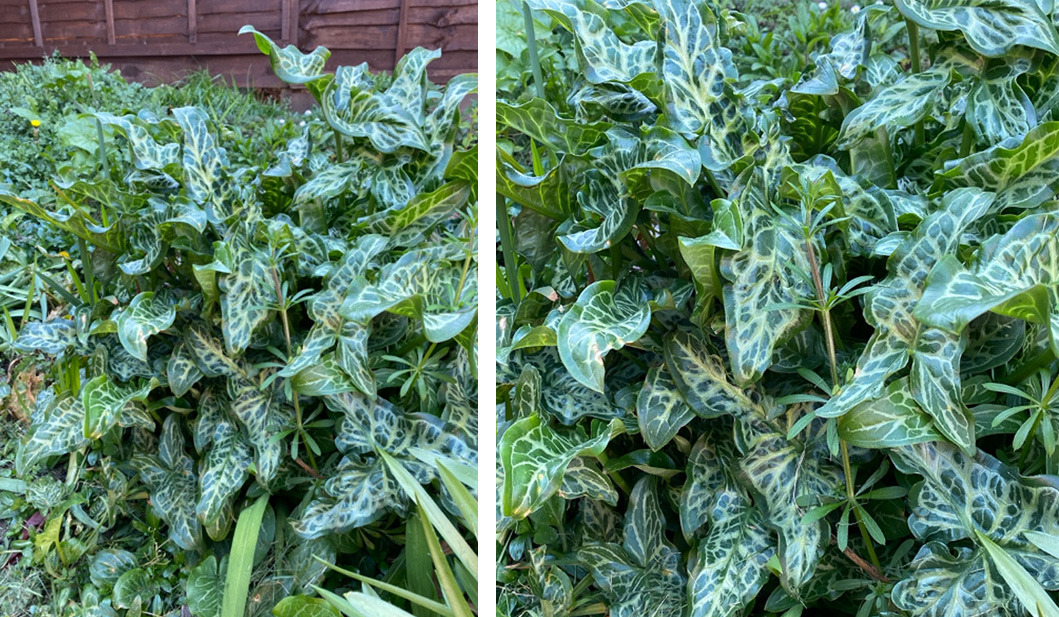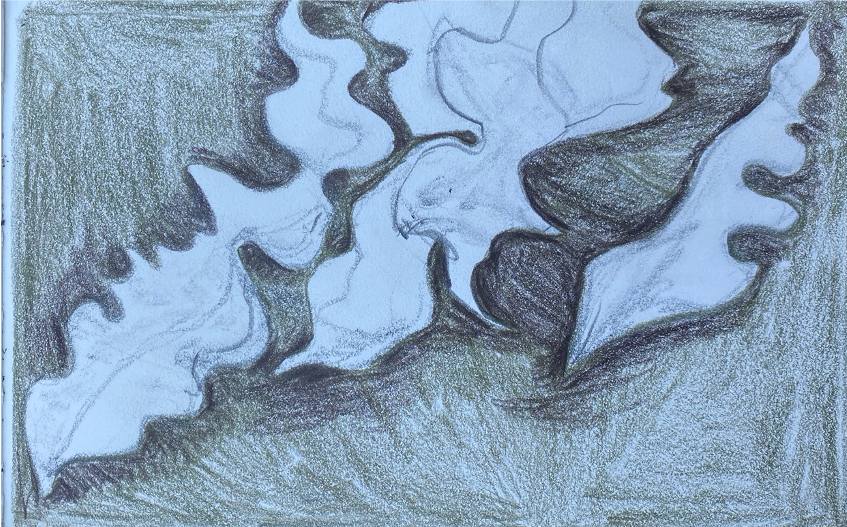By Laura Barritt
I perceive with my little… sketching tools
Focus on learning to comprehend your own unique ‘perceptive-markers’ and how to use these to create an artwork.
Don’t forget to submit images of your process or post online and tag @natsatclub and @cardiffmetcsad
Overview
Create three artworks by sketching an object and developing it by using different materials.
Materials needed
- Tools to draw – pencil or pen
- Paper or a surface to draw on
- Other materials you may wish to consider for further development
Activity part one – Sketching
1. Collect all your initial materials. This could be a pencil, paper, charcoal or a pen. 
2. Hunt!
Wander around your home and garden until something (an object) grabs your attention.
Note down the first 3 points you notice about the object.
Look again! Note down 3 more.
Example – This plant in my garden really caught my attention. Watch the film [07:18] to hear me talk about why I it caught my eye.
What did I notice first?
- Curls
- Blue highlights
- Mass of ringlet shapes
What do I notice when I look again?
- Tonal variation
- Contracts
- Focus on shape and form not pattern

3. Sketch
Start to sketch (from the object NOT from a photo) being mindful of the weight of your line. Is it heavy? Thick? Wispy? Thin? [10:00]
Try to bring out those features that you noticed about the object in point 2.

Positive or negative space? Choosing how to use space is very important. It will create a different focus point for your artwork and also change how you will use your materials. I decided that negative space was important for me to use as I wanted to focus on the shape rather than the detailed form itself. [10:50]

Developing Tone and Value [11:55]

4. Adding Colour
Add colour or play with patterns. Look at your sketch – what could make it develop more fully? Consider adding colour/colours or textures/patterns. [13:06]


Expanding Ideas…
Consider using your artwork to develop it using another material. I used oil paints in my piece, but what could you use? Materials will illustrate things in very different ways so it’s important to try them out. I like to try one I am comfortable with and that I know will work well. However, I also like to contrast this with one I think won’t work as this often leads to unexpected and interesting developments in your work. [15:48]

Thank you for taking part in the Cardiff Metropolitan University Art&Design Saturday Club Workshop. The next part will be live next week!
Don’t forget to submit images of your process or post online and tag @natsatclub and @cardiffmetcsad
Resources & References
12-year-old Aelita Andre is an established artist known for her abstract paintings inspired by everything from nature to music
Colour – is your red my red?
Contributed by Laura Barritt, Cardiff Metropolitan University Art&Design Saturday Club
Laura has a background in Fine Art and Education. She is currently a PhD student at Cardiff Metropolitan University with a focus on adolescent artistic abstraction. She holds a Masters in research (MRES) from the university and has taught in a range of secondary schools for over 10 years. Cognition, abstraction and understanding abstract process of mind are core to Laura’s work.